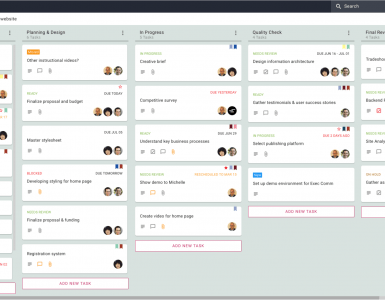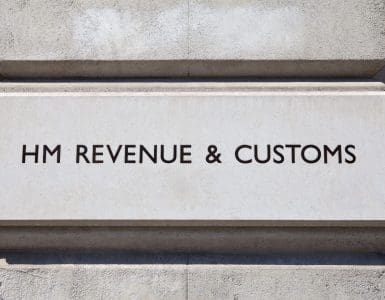When freelancing, it seems like there’s never enough time. Hectic schedules, sporadic and often protracted hours, and ever-looming deadlines can leave many glued to the sofa too tired to think about things like investing their hard-earned money.
But what if I told you that you could stay glued to your sofa and continue making money? Shouldn’t your savings be working as hard as you do?
An increasing number of freelancers are recognising the financial freedom that investing can provide. Though you might not become the next Bill Gates, investing can help consolidate your income and provide strong, stable returns for future expenditures. With interests in savings accounts being so low, it could be a no-brainer.
With that said, we’ve teamed up with our friends at Invezz.com to give you 6 tips that will be instrumental in securing success as a freelance investor.
1. Educate Yourself About Investing
Look:
We’ve all seen a depiction of Wall Street on the TV or in a movie. It can be a worrying first impression of the investment space: people shouting, phones ringing and general chaos…
…and it can definitely put freelancers off investing.
However, in recent years, investing has become a much more accessible and better-regulated pastime. Anyone can invest and anyone can make a success of it. However, Rome wasn’t built in a day; before you can get started investing as a freelancer, it is important to spend some time educating yourself.
Information about investing is now easily attainable from the comfort of your home. Some websites contain comprehensive investment guides and tips that you can access at the click of a button. Freelancers might worry they don’t have enough time to conduct this research, but just a few minutes of reading per day can go a long way.
Some key areas to focus on are how investing works, the different categories of investment – such as ISAs or stocks – and the difference between trading and investing. Freelancers who find time to learn about this trio can kickstart their investment journey with a strong foundation of knowledge.
2. Set Your Investment Goals
Do you want to secure steady, consistent gains to your savings, or do you want to deploy your disposable income on riskier but potentially more rewarding ventures? Investing as a freelancer is fundamentally about securing financial independence, and you should choose the clearest pathway towards that goal.
This all comes down to your personal needs. Are you discerning or are you daring? Regardless of your investment strategy, try to make sure you are always sensible.
3. Choose The Right Broker
A broker is a platform or person who executes trades for you. Many brokers now take the form of cutting-edge online interfaces, which makes investing as a freelancer considerably easier. If you are going to be the best freelance investor, you need to choose the right broker for you, but how?
Because online brokers have become so popular, there is no shortage of reviews available for your consumption. Investment professionals spend time and effort finding rankings of the best brokers around and compiling them on websites, such as our friends at Invezz. Check out some reviews and choose the broker that best fulfils your needs.
After you’ve chosen, it’s time to deposit some money into your account, make your first trade and get started investing as a freelancer!

4. Diversify Your Portfolio
Here’s the deal: if you put all of your eggs in one basket, you are putting yourself at increased risk…
…if you drop the basket, all you’ll be left with is a big, eggy mess.
Your portfolio is your collection of investments. If there is only one kind of investment in your portfolio and something goes wrong, the whole portfolio will be affected. However, if your portfolio is compiled from a variety of investments, one bad apple won’t upset the applecart.
Therefore, it is useful to invest in different things. Freelancers who diversify their portfolio significantly increase their chances of success.
By ensuring that your portfolio is diversified, you can mitigate the effects of losses, consider the following example:
Person A believes that Facebook is going to increase in value. Therefore, he invests all of his money into Facebook.
Person B also believes that Facebook is going to increase in value, but he only invests some of his money. He puts the rest into a gold mining company and a car manufacturer.
The following day, Facebook drops in value. Person A is upset. Person B is also upset until he notices that the car manufacturer he invested in has skyrocketed in value.
Freelancers can invest in almost anything today, from ISAs with a bank, to commodities like oil and silver, to stocks like Google and Tesla. There are even things like exchange-traded funds (ETFs) and mutual funds that offer exposure to a selection of investments.
With this in mind, freelancers can proceed to build a strong portfolio over time that results in a meaningful source of income.
5. Don’t Try To Get Rich Quick!
The last but perhaps most important tip regards the most common mistake made when investing as a freelancer: trying to get rich quick. Renowned investor Warren Buffet once said, “The stock market is a device for transferring money from the impatient to the patient.” The same applies for all categories of investment. Maybe slow and steady really does win the race.
Investing can be exciting, but this excitement should always be tempered with some pragmatism. Plus, investing isn’t the only strategy to earn passive income on the side of your day-to-day! Do your research and figure out the type of person you are.
Some people invest in something they don’t understand because of the hype surrounding it. Others get carried away and invest too much too quickly. Moreover, some investors find it difficult to part ways with an investment, even when it is performing poorly. Sometimes, it is better to accept a small loss rather than ending up with a large loss.
6. Beware of Leveraged Trading
Never treat investing like gambling, because that is exactly what it will become. Never be scared about missing an opportunity to make money; there will be another one just around the corner, so don’t rush. Importantly, don’t overuse leverage.
What exactly is leverage? Think of it as a loan between you and a broker. They will loan you the money for a larger investment than you could otherwise afford. This increases your exposure to the market and potential profit, but be warned, it also increases your exposure to losses.
For example, if a broker offers leverage of 1:100, this means that you can make a trade worth £100 with only £1 of your own money. On the face of things, this is an attractive concept, but dig a little deeper and the risks become apparent. Whilst the market may move in the direction you are hoping it to, there is every chance it could move against you. Therefore, your increased exposure to a potential upside is matched by your vulnerability to economic downturns. If you don’t know precisely what you are doing, losses can spiral out of control. In addition, brokers charge fees for those who use leverage, so bills can rack up quickly if you don’t know what you’re doing.
If they can avoid these common errors, freelancers can experience plenty of success by investing.
6. Take Advantage of New Opportunities
With COVID-19 creating such disruption in the professional lives of some freelancers, now is a better time than ever to start learning about investing. Even for those freelancers who remain busy and plastered to their sofa after work, it takes only a small amount of commitment for potentially great rewards.
Right now, the world is very hectic. It can be difficult to maintain a cool head; however, to be a successful investor, that is exactly what you will need to have. Investment decisions made with an emphasis on emotion rather than calm and reasoned analysis can land you in hot water.
There has rarely been an issue that affects global markets quite like COVID-19. The potential advantage is that market behaviour is more predictable. The endless hours of coverage about the pandemic can be demoralising, but they are actually an excellent source of information and indicators to reinforce your investment decisions.
Stocks Rising During The Pandemic
Stocks for video call companies have experienced a marked rise. Investors who were paying attention to global affairs and news outlets spotted the potential growth of this sector given the factor of social isolation inherent in the pandemic. Innovative pharmaceutical companies, like Pfizer, which pioneered a COVID-19 vaccine, have also seen significant growth.
The financial potential of this year will be decided by you. The pandemic has created sadness and destruction for many, so why shouldn’t investors try to get their own back by using it to enhance their investment protocols?
What’s Next?
Get started by digesting all of the investment content you can get your hands on. Then, develop your own investment thesis by exploring your needs. It is then time to consult online broker reviews; choose one that is reliable and user-friendly. Once your account is ready, gradually build up your portfolio and ensure it consists of a variety of investments.
Be realistic; take your time learning the ropes and don’t be forced into making rash decisions. However, remain primed to seize fresh opportunities.
The last year has been difficult for everyone, but with a little resourcefulness and ingenuity, freelancers can make 2021 a whole lot better.










